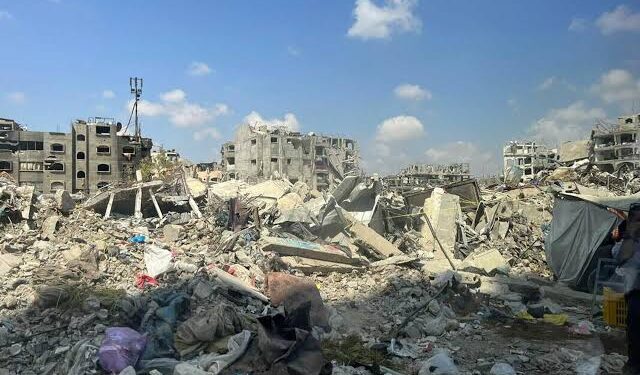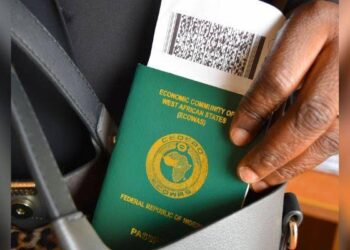Israel has declared a “tactical pause” in fighting in parts of Gaza on Sunday. It said it would allow the UN and aid agencies to open secure land routes to tackle the worsening hunger crisis in Gaza due to Israel’s total blockade.
Israel’s military also claimed it had begun air-dropping food into the territory and furiously rejected allegations it was using starvation as a weapon against Palestinian civilians.
The Israeli army, in a statement, said it coordinated its decisions with the UN and international organisations to “increase the scale of humanitarian aid entering the Gaza Strip.”
As at time of filing this report, there was no immediate official response from the UN or non-governmental aid agencies operating in Gaza, and privately sceptical humanitarian sources said they were waiting to see the results on ground, following the Israeli announcement.
The temporary pause in fighting would be limited to areas where the military says Israeli troops are not currently operating — Al-Mawasi, Deir el-Balah and Gaza City — and would last from 10:00 am (0700 GMT) until 8:00 pm every day.
But the Israeli statement noted that “designated secure routes” had been opened across all of Gaza to enable the safe passage of UN and humanitarian aid organisation convoys delivering and distributing food and medicine.
The Israeli military said these operations, alongside its ongoing campaign against Palestinian armed groups, should disprove “the false claim of deliberate starvation in the Gaza Strip.”
Israel imposed a total blockade on Gaza on March 2 after ceasefire talks broke down. In late May, it began allowing a small trickle of aid to resume, amid warnings of a wave of starvation.
Before Israel announced the airborne delivery of seven pallets of food, the United Arab Emirates (UAE) had said it would restart aid drops, and Britain said it would work with partners including Jordan to assist them.
On Saturday, the Palestinian civil defence agency said over 50 more Palestinians had been killed in Israeli strikes and shootings. Some were killed as they waited near aid distribution centres.
“We ask God and our Arab brothers to work harder to reach a ceasefire before we all die,” Gaza resident Hossam Sobh said, adding that he had feared death as he retrieved a bag of flour under the nose of an Israeli tank.
Israeli troops, on Saturday, boarded a boat carrying activists from the Freedom Flotilla Coalition as it attempted to approach Gaza from the sea to challenge a naval blockade.
The humanitarian situation in the Palestinian territory has gravely worsened in recent days, with more than 100 NGOs warning this week that “mass starvation” was spreading in Gaza.
The Israeli military announced on Telegram that it “carried out an airdrop of humanitarian aid as part of the ongoing efforts to allow and facilitate the entry of aid into the Gaza Strip.”
Humanitarian chiefs are deeply sceptical that air drops can deliver enough food safely to tackle the worsening hunger crisis facing Gaza’s more than two million inhabitants.
Some Western and Arab governments carried out air drops in Gaza in 2024, when aid deliveries by land also faced Israeli restrictions, but many in the humanitarian community consider them ineffective.
“Air drops will not reverse the deepening starvation,” said Philippe Lazzarini, head of the UN agency for Palestinian refugees, UNRWA. “They are expensive, inefficient and can even kill starving civilians.”
Israel’s military insists it does not limit the number of trucks going into Gaza, and alleging that UN agencies and relief groups are not collecting aid once it is inside the territory.
However, humanitarian organisations accuse the Israeli army of imposing excessive restrictions, while tightly controlling road access within Gaza.
A separate aid operation is under way via the Israeli- and US-backed Gaza Humanitarian Foundation. However, it has faced fierce international criticism after Israeli fire killed hundreds of Palestinians near distribution points.





































